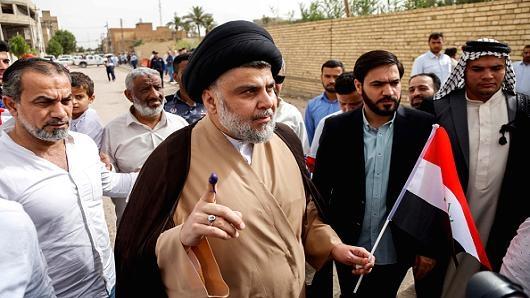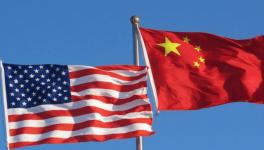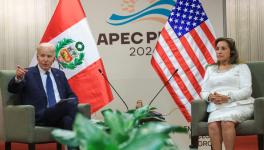Sadrist-Communist Alliance Leads Iraq Elections

The verdict in the recent elections in Iraq, which saw the US-backed incumbent Prime Minister Haider al-Abadi consigned to the third position, may dealt a blow to US influence in the region.
With 1.3 million votes, in the lead is the Sairoon Alliance, a coalition comprising the Sadrist movement and the Communist party. The alliance is headed by Muqtada al-Sadr -- a long-time opponent of American intervention - who headed a Shiite militia called the Mahdi Army which fought the invading American forces in 2003. The then US President George Bush had reportedly considered having al-Sadr killed or captured by the American military soon after the invasion had begun.
After the elections, New York Times reported, “Some of Mr. Sadr’s political allies, even those who fought against American soldiers in the past, want the United States to stay and help shore up the country. His closest rivals in the election also support the Americans staying. And even Mr. Sadr’s representatives have said that he would abide by agreements between the United States and Iraq on training Iraqi security forces.”
91% of the votes have been counted so far in 16 of the 18 provinces. The Sadr-led coalition has not contested in the remaining two provinces - the Kurdish-dominated Dohuk and the ethnically diverse oil-rich province of Kirkuk. However, the “results there, which may be delayed due to tensions between local parties, will not affect Sadr's standing,” Al Jazeera reported.
The voter-turnout - which was 62.5% in 2010, 60% in 2014 and 79% in 2015 - dipped to 44.2%, which is the lowest since 2003. One of the few exceptions is the city of Nineveh located on the outskirts of Mosul, where voters participated at a much higher rate than average, and backed PM Abadi. Analysts have ascribed this to the recent liberation of Mosul from the Islamic State by the Iraqi army.
The Fatah alliance, of which the pro-Iranian militias called Popular Mobilization Units are a part, has won the second highest number of votes.
While the incumbent Prime Minister Haider al-Abadi has the backing of both the US and Iran, al-Sadr has been one of the few Shiite leaders who has opposed not only the US but also Iran’s influence in Iraqi affairs.
Seeking to generate support in the region, Sadr also met Saudi Crown Prince Mohammed bin Salman in Jeddah last year, which has made Iran cautious. Referring to the Communist party which is in Sadr’s coalition, Ali Akbar Velayati, the chief adviser to Iran’s Supreme leader Ali Khamenei, had threatened earlier this year to "not allow liberals and communists to govern in Iraq.”
Sadr, while mentioning the various parties with which he is willing to work to form a government, has in turn left out both parties that have Iran’s backing - Abadi’s State of Law Coalition and the Fatah coalition.
While he did not contest the elections, Sadr will have a prominent say in deciding who will be the next Prime Minister. However, having won only 55 of the 329 seats in Parliament, the coalition will have to find more allies during the negotiations that are likely to go on for at least 2 weeks. .Some analysts have even speculated about the possibility of PM Abadi retaining power by cobbling together an alliance.
Get the latest reports & analysis with people's perspective on Protests, movements & deep analytical videos, discussions of the current affairs in your Telegram app. Subscribe to NewsClick's Telegram channel & get Real-Time updates on stories, as they get published on our website.






















